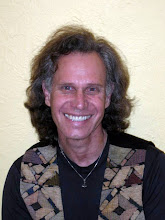Thursday, June 25, 2009
The Curious Case of Benjamin Button and Self-Love
"Slumdog Millionaire" and Self-Love
Wednesday, June 17, 2009
Humiliation and Self-Love
Self-love is a feeling about myself. It isn't a thought; it isn't a New Year's resolution I make and break. Self-love is a way life, something that comes from the heart, not the head. And one of the most difficult feelings for the heart to process is the feeling of humiliation. Humiliation, like all feelings, can be triggered by others, but it then moves through me independent of the trigger that caused it.
The concept of my book, The Wisdom of Self-Love, is that life is a school in which I'm learning to love myself and, in so doing, feel all the feelings that move through me. And if life is a school I can’t ask for a refund on the emotional cost of my education just because I don’t like my curriculum. I tried staring out the window, ignoring the lessons at hand; I tried playing hooky; I tried getting bad grades for fear of going on to harder classes; I even tried graduating before I had all my credits. But I discovered I can’t complain to the world that I’ve overpaid on life's tuition. Nobody’s gives a damn...
Self-love, like an education, is a tightrope that's much harder than it looks. I can feel afraid of falling; I can refuse to take the steps necessary toward loving myself; I can fall and swear I can’t get up. But there will always be clowns sent in to this three-ring circus I find myself in. That I've already experienced and now know for a fact.
The clowns around me laugh at me when I fall. Even the clowns within try to distract me from myself when the feelings are deeply uncomfortable. But I know how much pain I'm really in; I know that inside when I'm bleeding.
The clowns within are the bullies that laugh when I'm down, but they also help me admit that I'm deeply angry with myself. I can’t stop them for trying to distract me from the pain of being me. But what I can do is feel the unintended emotional consequences of their good intentions honestly.
And when I'm through my anger at being me and can feel finally sad; when I can feel sorry for myself at having to experience such pain; when I can admit that I’ve humiliated myself in front of myself; when I can admit that life can sometimes be a humiliating process that makes me feel sorry and small despite my best intentions; when I can cry for that poor soul within bleeding from having lost his balance. Then I can continue on to lifelong spiritual learning about myself without anymore fear.
Only those who have been through life’s classes in the pain of humiliation can move on to the next class: grace. It takes honesty to be graceful, and it takes grace to be honest with myself. This is the essence of the wisdom of self-love.
